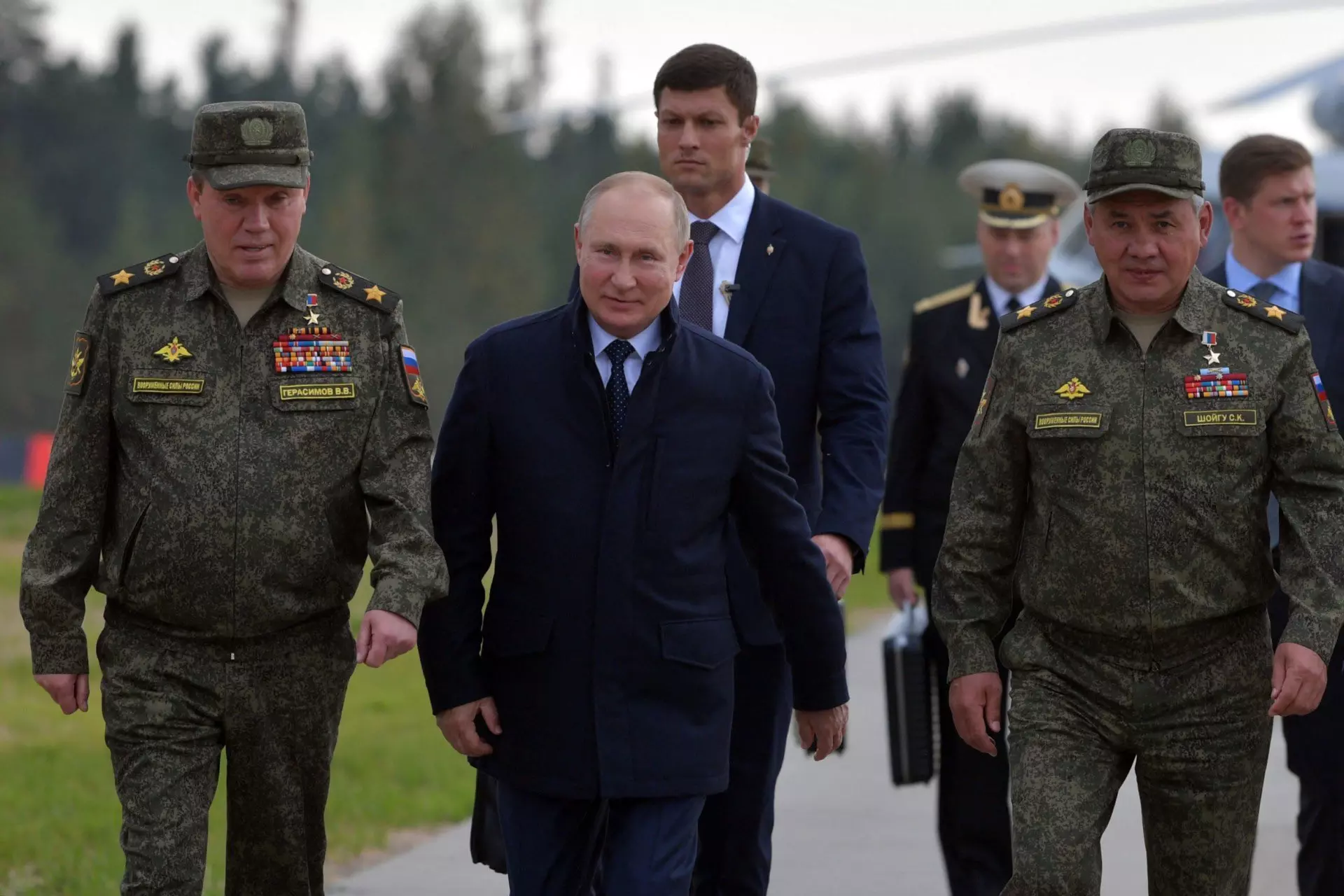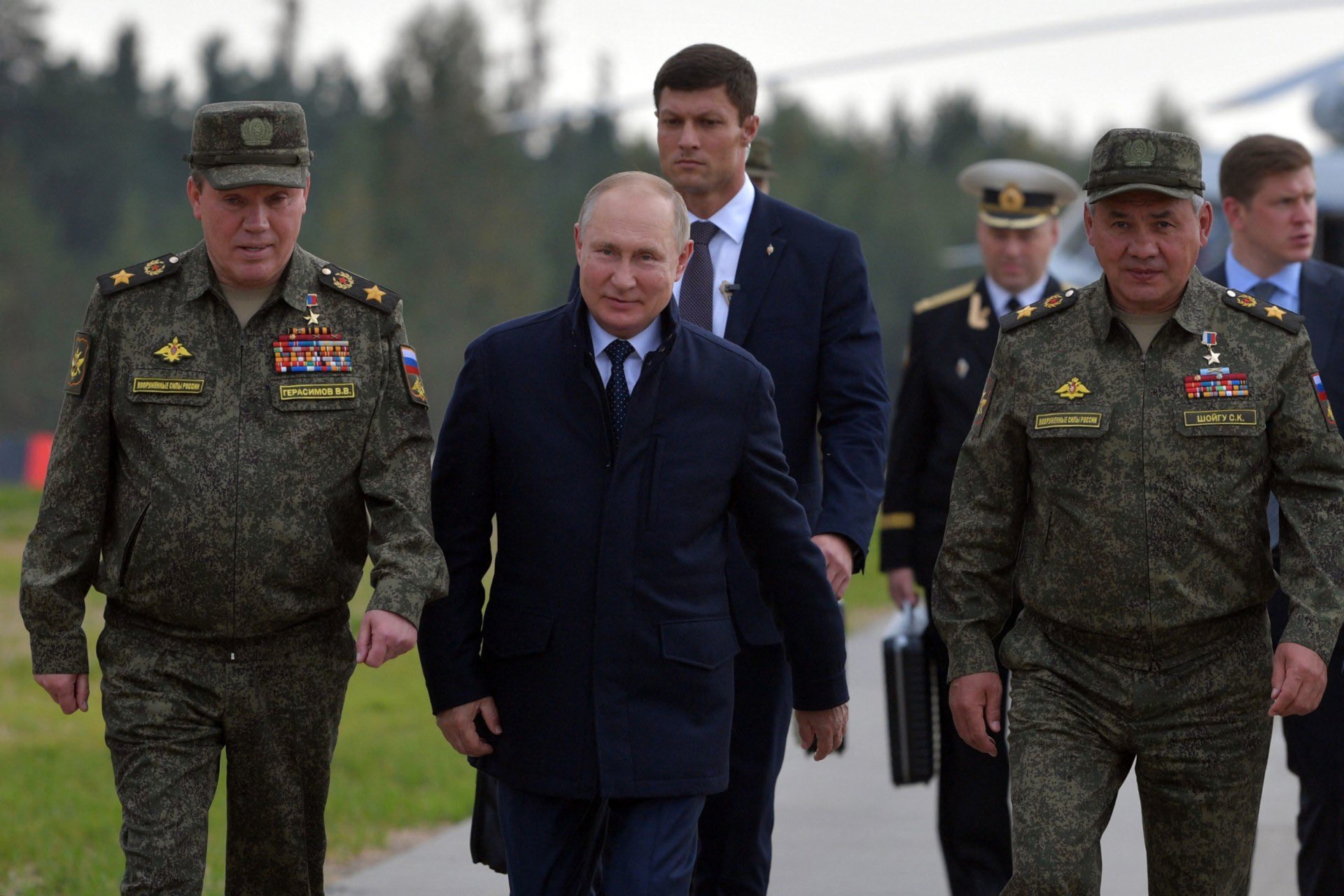
Kyiv: Russian President Vladimir Putin said that Russia has tested a new intermediate range missile in a strike on Ukraine on Thursday, and warned that Moscow could use it against countries that have allowed Kyiv to use their missiles to strike Russia.
Putin said in a nationwide TV address that the Russian strike on Ukraine on Thursday came in response to Ukrainian strikes on the Russian territory with US and British missiles earlier this week.
The Russian leader declared that Russia would issue advance warnings before strikes on other countries to allow civilians to evacuate to safety.
He warned that US air defence systems wouldn’t be capable of intercepting Russian missiles.
Ukraine claimed on Thursday that Russia launched an intercontinental ballistic missile overnight at one of its cities, but American officials said an initial US assessment indicated the strike was carried out with an intermediate-range ballistic missile.
Ukraine did not provide any evidence that an ICBM was used in the attack on the central city of Dnipro, apparently armed with conventional warheads.
Ukrainian President Volodymyr Zelenskyy said a missile used matches the speed and altitude of an ICBM. The Kremlin refused to comment on the strike.
But an initial US assessment shows the strike came from an intermediate-range ballistic missile not an ICBM, according to two US officials familiar with the matter who spoke on condition of anonymity because they were not authorised to comment publicly about it. A third US official also said it did not appear to be an ICBM.
The attack comes in a week when tensions have repeatedly soared, as the US eased restrictions on Ukraine’s use of American-made longer-range missiles inside Russia and Russian President Vladimir Putin lowered the threshold for launching nuclear weapons.
The range of an ICBM � which can exceed 5,500 kilometers (3,400 miles) � is beyond what is needed to attack Ukraine. But such missiles are designed to carry atomic warheads, and the use of one, even with a conventional payload, would serve as a chilling reminder of Russia’s nuclear capability. It also appears to send a message to Ukraine’s Western allies that Moscow has the ability to target them.
If confirmed, it would be the first time Moscow has used such a weapon in the war.
In a statement Thursday on the Telegram messaging app, Ukraine’s air force said an intercontinental ballistic missile was fired at Dnipro, along with eight other missiles, and that the Ukrainian military shot down six of them.
Two people were wounded in the attack, and an industrial facility and a rehabilitation centre for people with disabilities were damaged, according to local officials.
The air force statement said it was launched from Russia’s Astrakhan region, on the Caspian Sea.
Today, our crazy neighbour once again showed what he really is, Zelenskyy said. And how afraid he is.
UK officials did not immediately confirm what kind of missile Russia fired. Prime Minister Keir Starmer’s spokesman, Dave Pares, called the reports deeply concerning but added that intelligence services were still looking into them.
If true, clearly this would be another example of grave, reckless and escalatory behavior from Russia and only serves to strengthen our resolve, he said.
Defence Secretary John Healey said there were unconfirmed reports of Russia firing a new ballistic missile into Ukraine, which we know they have been preparing for months.
Ballistic missiles can have a range of anywhere from under 500 kilometers (310 miles) to over 5,500 kilometers (3,400 miles) in the case of intercontinental ones. Ballistic refers to the shape of their trajectory.
Since the Cold War era, Moscow and Washington have given each other advance notice about ICBM launches to prevent the other side from perceiving a test launch as a nuclear attack.
They have stuck to exchanging such warnings despite increasing tensions which ratcheted up again in recent days.
Earlier this week, the Biden administration authorised Ukraine to use US-supplied, longer-range missiles to strike deeper inside Russia a move that drew an angry response from Moscow.
Days later, Ukraine fired several of the missiles into Russia, according to the Kremlin. The same day, Putin signed a new doctrine that allows for a potential nuclear response even to a conventional attack on Russia by any nation that is supported by a nuclear power.
The doctrine is formulated broadly to avoid a firm commitment to use nuclear weapons. In response, Western countries, including the US, said Russia has used irresponsible nuclear rhetoric and behaviour throughout the war to intimidate Ukraine and other nations.
They have also expressed dismay at the deployment of thousands of North Korean troops to Russia to fight against Ukraine.
Also Thursday, Russia also struck Zelenskyy’s home city of Kryvyi Rih, wounding 26 people, said the head of regional administration, Serhii Lysak. The missile strike caused damage to an administrative building, at least five multi-story residential buildings, and civilian vehicles.
The Russian Defence Ministry, meanwhile, said in a statement that its air defence systems shot down two British-made Storm Shadow missiles, six HIMARS rockets, and 67 drones.
The statement didn’t say when or where the Storm Shadows were shot down or what they were targeting. Russia earlier reported downing some of the missiles over the illegally annexed Crimean Peninsula.
More than 1,000 days into war, Russia has the upper hand, with its larger army advancing in Donetsk and Ukrainian civilians suffering from relentless drone and missile strikes.
Analysts and observers say that the loosening of restrictions on Ukraine’s use of Western missiles is unlikely to change the the course of the war, but it puts the Russian army in a more vulnerable position and could complicate the logistics that are crucial in warfare.
Putin has also warned that the move would mean that Russia and NATO are at war.
It is an important move and it pulls against, undermines the narrative that Putin had been trying to establish that it was fine for Russia to rain down Iranian drones and North Korean missiles on Ukraine but a reckless escalation for Ukraine to use Western-supplied weapons at legitimate targets in Russia, said Peter Ricketts, a former UK national security adviser who now sits in the House of Lords.
